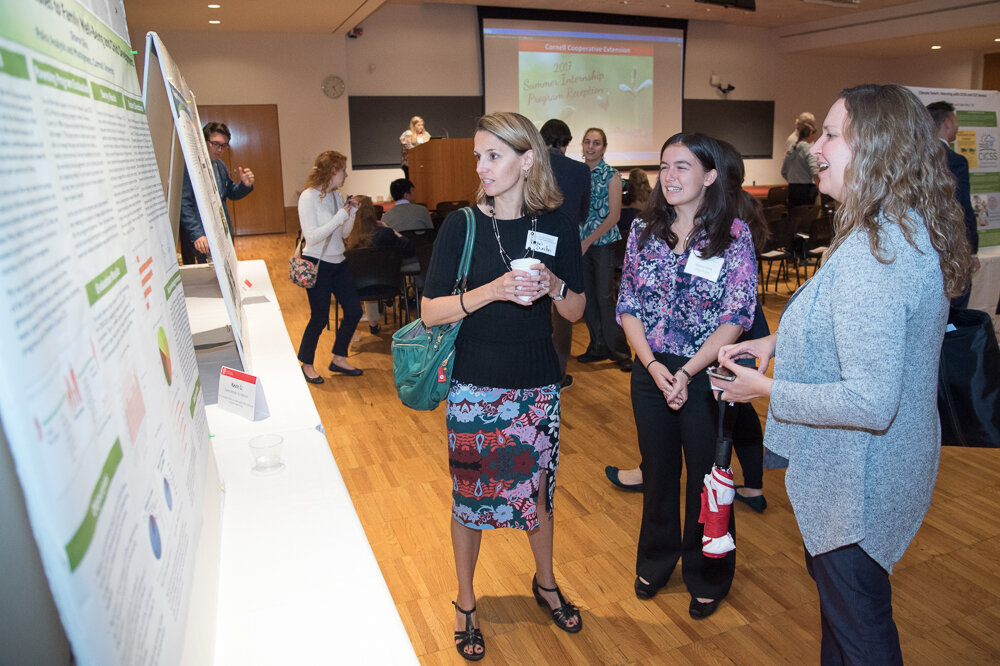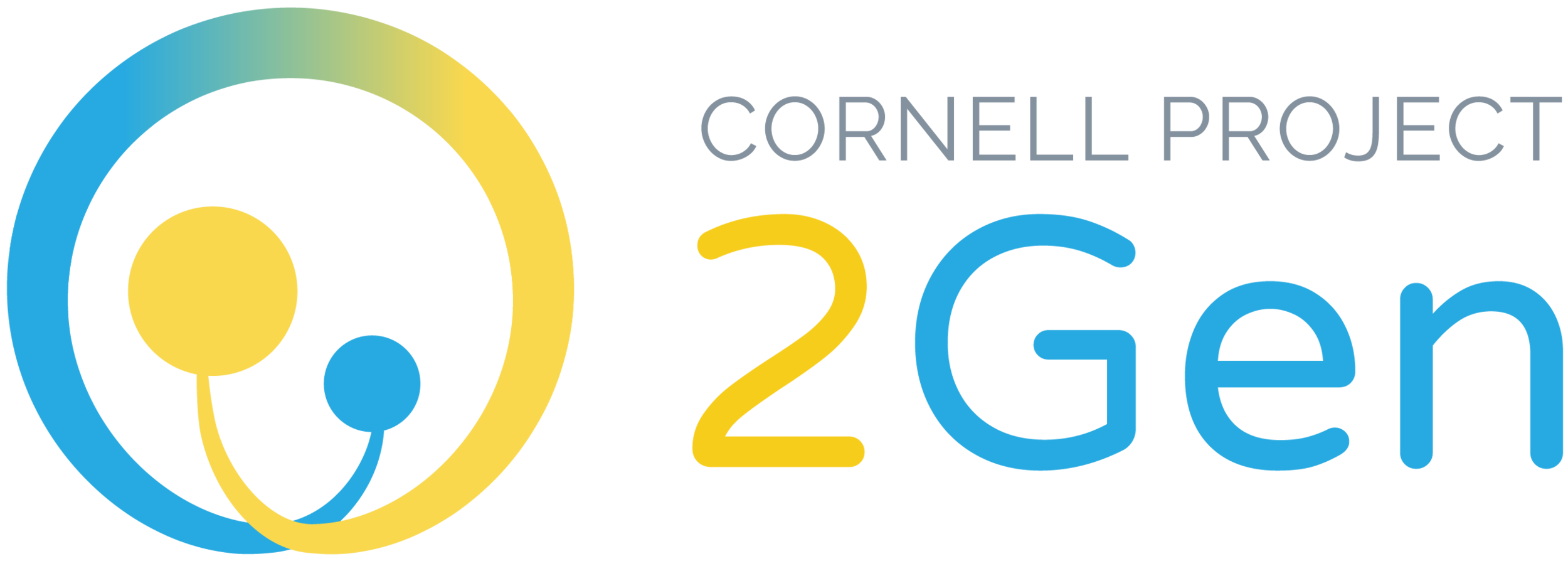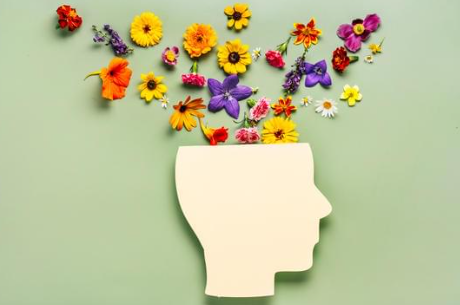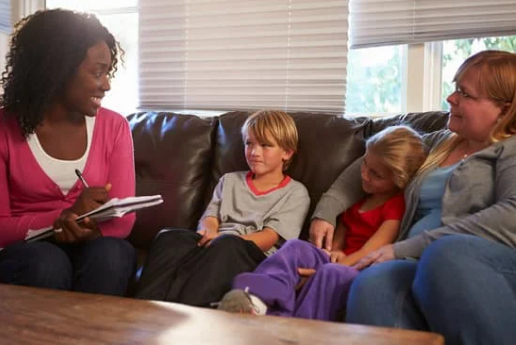
2Gen Scholars
Cornell Project 2Gen works to develop and strengthen relationships among Cornell faculty, students, and New York policymakers. We provide outlets for sharing research with policymakers and are developing new strategic partnerships between researchers and policymakers to help inform the decision-making process.

At the request of NYS county policymakers, our team compiled information on ways to support grandparents raising grandchildren.
At the request of NYS county policymakers, our team compiled information on school-based youth mental health.
At the request of NYS county policymakers, our team compiled information on mobile mental health crisis units.
At the request of NYS county policymakers, our team compiled information on program sustainability in the midst of employee turnover.
At the request of NYS county policymakers, our team compiled information on best practices for supporting youth with multisystem involvement
At the request of NYS county policymakers, our team compiled information on the challenges surrounding childcare access in New York and across the U.S.
At the request of NYS county policymakers, our team compiled information on ways to build connections between communities of color and police
At the request of NYS county policymakers, our team compiled information on ways to build connections between schools and probation departments.
At the request of NYS county policymakers, our team compiled information on ways to build connection and sense of belonging for teens.
At the request of NYS county policymakers, our team compiled information on ways to support child welfare caseworkers.
At the request of NYS county policymakers, our team compiled information on ways to support youth mental health.
Erin Mathios’ MPH thesis qualitatively analyzes experiences of stigma in Family Treatment Court.
Some but not all aspects of a New York county’s Family Drug Treatment Court expansion increased the county’s family reunification rate.
The 2Gen team and Cornell Cooperative Extension-Tompkins discuss their research-practice partnership addressing the opioid epidemic.
State-level child welfare policies and practices affect what can be referred, investigated, and substantiated as child maltreatment, and these institutional factors vary across states and over time.
Our findings show the importance of attending to both housing status and household composition when studying children living in doubled-up households.
Search our program database to discover promising programs that serve families dealing with substance misuse.
The stress, anxiety, and isolation associated with the pandemic have the potential to exacerbate opioid misuse, and patients already in treatment may face disruptions in care.
Learn about evidence-based programs and how to find EBPs that fit your community's needs.
Lauren Kessler and Matthew Sheen assessed cultural humility in parent education curricula.
Initial findings from interviews with parents involved in the Tompkins County Family Treatment Court and Strengthening Families Program.
Over the past two years, Project 2Gen has grown, building collaborations locally, statewide, and nationally
This book examines the impact of inequality on children’s health and education, and offers a blueprint for addressing the impact of inequality among children in economic, sociological, and psychological domains.
Faculty, staff, and students met virtually with New York State legislators to discuss policy-relevant research on environmental policy and health.
Cornell faculty, staff, and students met virtually with New York State legislators and staff for non-partisan, open dialogue about policy-relevant research on issues at the intersection of environmental policy and health.
Air quality improvements are often expensive, but can carry substantial social and related economic benefits.
Built environment factors, like exposure to traffic emissions, have a significant impacts on health.
The use of plant-based advanced green composites can help New York State reach its progressive sustainability goals.
In recent years, the widespread and tragic misuse of opioids has become a public health epidemic.
It is not always easy to tell when people around us are struggling with drug use. If you are concerned about someone in your life, you can look out for the following warning signs and reach out to them.
Cornell Institute for Public Affairs Capstone Projects
The Cornell Institute for Public Affairs seminal capstone course provides an opportunity for master’s students to work on a professional project for an external organization. The Cornell Project 2Gen initiative works with CIPA students on capstone projects that involve a 2Gen framework to further research, practice, and policy.






























